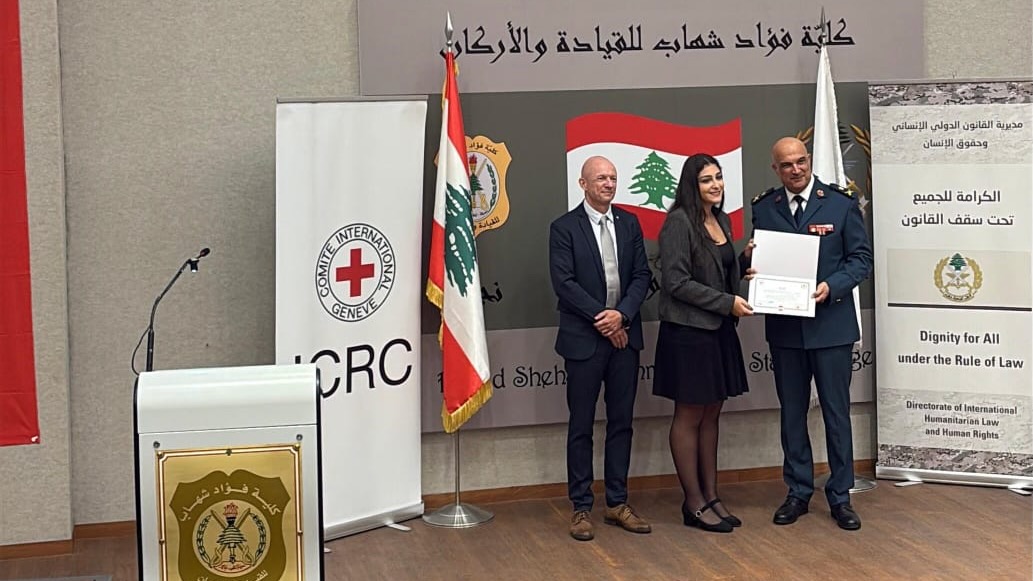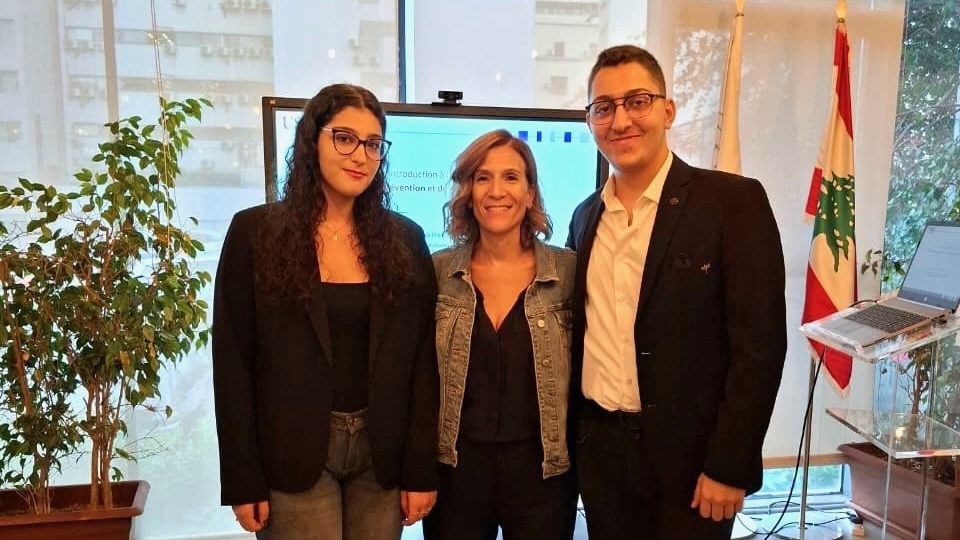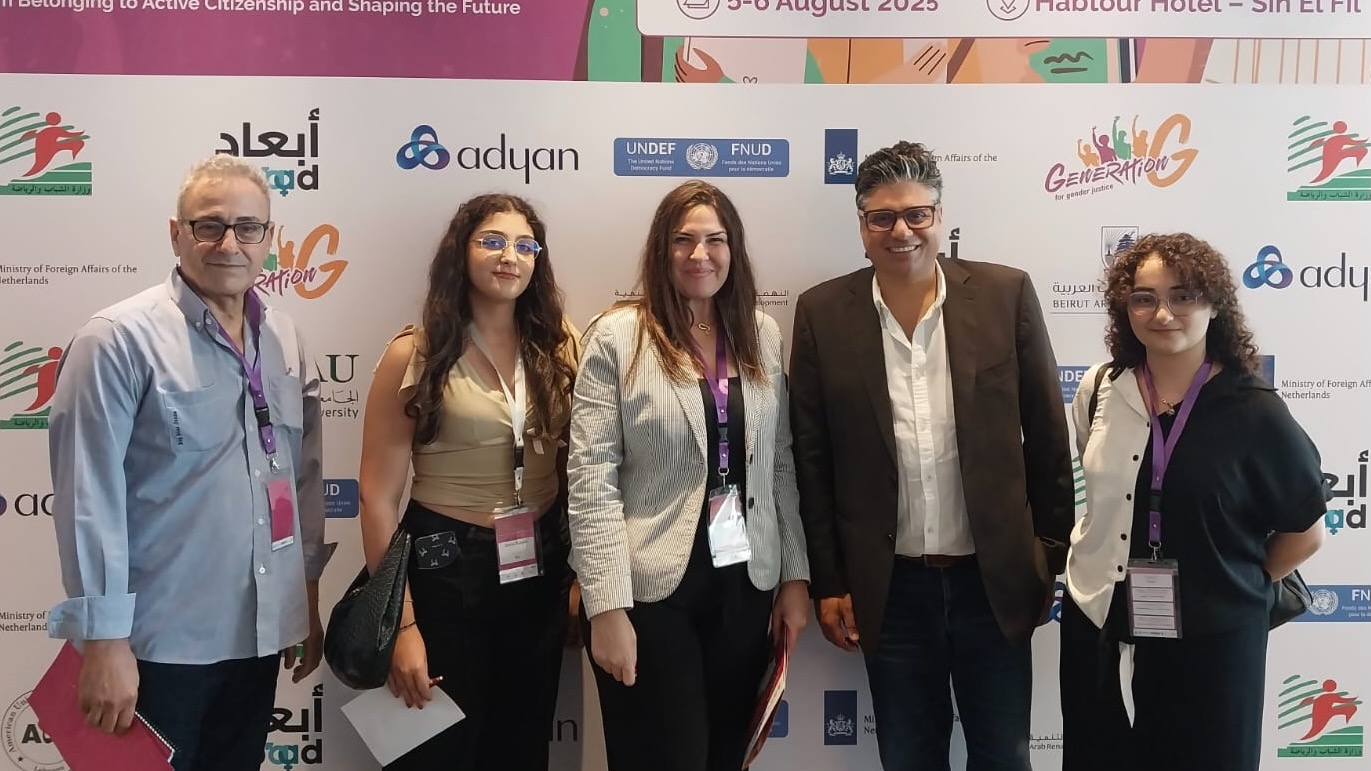Faculty of Political Science and International Relations
- Bachelor's and Master's Degrees available in English or French
The Faculty of Political Science and International Relations offers a Bachelor and Master programs in french and in english:
– Bachelor in Political Science and International Relations
– Master in Political Science and International Relations with specialisations in:
- NGO Management (Professional Degree)
- Diplomacy and Strategic Negotiations (Research and Professional Degrees)
Vision
Incorporating the values of academic excellence, integrity, inclusion, and commitment, the Faculty of Political Science and International Relations aspires to become a recognized center of reference where students, faculty researchers, and academic partners evolve into opinion leaders in public debate and entrepreneurs of social change, capable of understanding the complexities of governance at all levels. The faculty aims to serve as a platform for dialogue for political, governmental, and diplomatic actors by organizing symposiums, conferences, and roundtable discussions on current issues related to national, international, and politico-religious causes. Additionally, it aims to enhance its relations with the foreign diplomatic corps while promoting a culture of peace building, tolerance and respect for human rights, the rule of law, good governance, in accordance with the doctrine of the Catholic Church.
A. Academic Excellence & Research
The vision underscores a commitment to maintaining high standards of education and research, emphasizing the importance of academic excellence as a core value within the faculty.
B. Opinion Leadership & Entrepreneurship
The vision aims to empower students, faculty researchers, and academic partners to become opinion leaders in public discourse and entrepreneurship, indicating a desire to foster meaningful contributions and innovation to discussions on governance and relevant societal issues.
C. Dialogue and Engagement
By aspiring to become a platform for dialogue for political, governmental, and diplomatic actors, the faculty demonstrates a commitment to fostering open communication and engagement with key stakeholders.
D. Active role in facilitating knowledge dissemination and fostering intellectual exchange
The vision includes proactive event organization such as symposiums, conferences, and roundtable discussions on pertinent topics, showcasing an active role in facilitating knowledge dissemination and fostering intellectual exchange.
E. Intention to strengthen international partnerships and collaborations
Enhancing relations with foreign diplomatic corps signifies an intention to strengthen international partnerships and collaborations, reflecting a commitment to global engagement and cooperation.
F. Promotion of Values of integrity, inclusion, tolerance, peace building, citizenship, rule of law, good governance, and respect for human rights, in line with the doctrine of the Catholic Church
Additionally, to incorporating values such as integrity and inclusion, the vision aims to promote a culture of tolerance, peace building, citizenship, rule of law, good governance, and respect for human rights, aligning with the doctrine of the Catholic Church and emphasizing the importance of ethical values in the faculty’s activities.
Mission
The mission of the Faculty of Political Science and International Relations is to act as a catalyst for positive change and to promote the common good at both local and international levels. Striving to cultivate a supportive knowledge and research environment, the faculty is committed to providing students with a rich and multidimensional academic background, including a high-level, rich, and specialized academic curriculum, enabling them to be a ‘politologue’ and to participate in competitive examinations for the diplomatic corps, to apply for positions within public administration, international organizations, and international NGOs. It fosters cooperative and partnership relationships with foreign counterpart institutions, thereby enhancing internship opportunities in both the public and private sectors, as well as in international organizations and NGOs. Additionally, the faculty is committed to engaging students in politico-cultural activities to enrich their academic experience, and nurturing their commitment to advocate for social justice, transparency, and ethics. Lastly, the faculty is engaged to equip students with the know-how needed to succeed in conflict resolution and crisis management. The faculty is committed to offering demanding academic instruction enhanced by practical simulations, guaranteeing that its graduates are suitably equipped to make valuable contributions to community preparedness and resilience.
A. Dedication to serving the broader community and advancing societal well-being
Catalyst for Positive Change and Promotion of the Common Good at both local and international levels. Mediators in conflict resolution, and experts in managing crises.
B. Academic excellence and supportive research environment
Providing students with a rich and multidimensional academic background and engaging them in politico-cultural activities to enrich their academic experience.
Cultivating a supportive knowledge and research environment.
C. Preparation for careers
The faculty aims to equip students with the skills and knowledge in competitive examinations for the diplomatic corps and to pursue careers in public administration, international organizations, and NGOs.
D. Emphasis on collaboration and openness, both locally and internationally
The mission underscores the importance of collaborative relationships with foreign counterpart institutions, enhancing internship opportunities and facilitating cross-cultural exchange.
E. Cultural enrichment
The mission acknowledges the significance of politico-cultural activities in enriching students’ academic experiences, indicating a commitment to holistic education and cultural understanding.
F. Advocacy for social justice, transparency, and ethics
Nurturing students’ commitment to advocate for social justice, transparency, and ethics.
Values
Embodying the fundamental values of human rights and citizenship is at the core of the Faculty’s mission. Driven by dynamism and programs focused on promoting community engagement, the faculty actively contributes to peace building and social justice. Research in political science is valued, providing an in-depth education in politics while fostering respect for the rule of law. The primary ambition of the FSPRI is to contribute to the emergence of a society free from tensions, based on democratic principles and coexistence, by discarding any hateful discourse and prioritizing the peaceful resolution of disputes, while cultivating a culture of tolerance.
FV1. Human rights and citizenship. Embodying the fundamental values of human rights and citizenship.
FV2. Dynamism and community engagement. Being driven by dynamism.
Focusing programs on promoting community engagement.
FV3. Peace building and social justice. Actively contributing to peace building and social justice.
FV4. Respect for the rule of law. Fostering respect for the rule of law.
FV5. Research and in-depth education in politics. Providing an in-depth education in politics and commitment to research.
FV6. Democratic principles and coexistence. Contributing to the emergence of a society free from tensions, based on democratic principles and coexistence.
FV7. Peaceful resolution of disputes and culture of tolerance. Discarding any hateful discourse. Prioritising the peaceful resolution of disputes. Cultivating a culture of tolerance.
Institutional Learning Outcomes (ILOs)
The Faculty has six ILOs:
ILO 1. Recall key theories, concepts, and methodologies in political science and international relations and apply developed knowledge to real-world complex scenarios.
ILO 2. Exhibit proficiency in articulating own political viewpoints while adopting a constructive dialogue in cross-cultural environments.
ILO 3. Apply research methodologies to collect, analyze, and interpret data effectively, contributing to informed and ethical political decision-making.
ILO 4. Embody ethical leadership principles in personal and professional lives.
ILO 5. Cultivate a commitment to civic engagement, actively advocating for positive change on local, national, and international levels.
ILO 6. Generate innovative solutions and entrepreneurial ideas to address real-world challenges.
Undergraduate and Graduate Programs
Undergraduate Programs
| Faculty of Political Science and International Relations | Faculté de science politique et des relations internationales | |||
|---|---|---|---|
| Program | Concentration | Entrance Exam | Credits |
| - In English | |||
| Bachelor | Political Science and International Relations | English, Arabic | 96 |
| Programme | Concentration | Examen d’entrée | Crédits |
| - En français | |||
| Licence | Science politique et relations internationales | Français, Arabe | 96 |
» Program Learning Outcomes - Bachelor in Political Science and International Relations
| PLOs | Bachelor in Political Science and International Relations | |
|---|---|---|
| PLO 1 | Describe key theories and concepts in political science and international relations. | ILO 1 |
| PLO 2 | Apply theoretical concepts and acquired skills in real contexts and provide solutions. | ILO 1 ILO 6 |
| PLO 3 | Critically analyse political actors, processes, discourses, legal practices, and public policies with a multidimensional perspective. | ILO 3 |
| PLO 4 | Conduct research in political science and international relations. | ILO 3 |
| PLO 5 | Communicate effectively in political contexts. | ILO 2 |
| PLO 6 | Comply with faculty’s values and recognised ethical standards in the field. | ILO 4 ILO 5 |
Graduate Programs
| Faculty of Political Science and International Relations | Faculté de science politique et des relations internationales | |||
|---|---|---|---|
| Program | Concentrations | Entrance Exam | Credits |
| - In English | |||
| Master in Political Science and International Relations | Diplomacy and Strategic Negotiations | Oral Interview | 39 |
| Professional Master in Political Science and International Relations | Diplomacy and Strategic Negotiations | Oral Interview | 39 |
| Professional Master in Political Science and International Relations | NGO Management | Oral Interview | 39 |
» Program Learning Outcomes - Master of Sciences - Diplomacy and Strategic Negotiations Concentration
| PLOs | Master of Sciences in Diplomacy and Strategic Negotiations | |
|---|---|---|
| PLO 1 | Critically analyze power dynamics, negotiation strategies, and contemporary diplomatic challenges, applying relevant theoretical and methodological frameworks. | ILO 1 |
| PLO 2 | Master trends and developments in international relations, analyzing interactions between state and non-state actors in a global context. | ILO 1 ILO 5 |
| PLO 3 | Evaluate the challenges and opportunities of scientific diplomacy and humanitarian issues in addressing global problems. | ILO 3 ILO 5 |
| PLO 4 | Apply the necessary skills to engage in dialogue and cooperation on the international stage, understanding diplomatic protocols and professional conduct standards through live-exercises and crisis management real-time simulations. . | ILO 2 ILO 4 |
| PLO 5 | Develop a researcher profile in the field of diplomacy and strategic negotiations, acquiring an in-depth understanding of theories, concepts, and practices. | ILO 1 ILO 3 |
» Program Learning Outcomes - Professional Master - Diplomacy and Strategic Negotiations Concentration
| PLOs | Professional Master in Diplomacy and Strategic Negotiations | |
|---|---|---|
| PLO 1 | Analyse power dynamics using strategic approaches to resolve conflicts and promote diplomacy. | ILO 1 ILO 2 ILO 5 |
| PLO 2 | Develop a profile of a competent diplomat capable of understanding political, economic, and social issues in an ever-evolving global context. | ILO 1 ILO 4 |
| PLO 3 | Apply skills by identifying trends and opportunities through live-exercises and crisis management real-time simulations. | ILO 1 ILO 6 |
| PLO 4 | Mobilise the necessary skills to engage in dialogue and cooperation on the international stage, understanding diplomatic protocols and professional conduct standards. | ILO 2 ILO 4 |
| PLO 5 | Design and implement effective crisis management strategies, considering contemporary challenges and diverse implications. | ILO 3 ILO 6 |
» Program Learning Outcomes - Professional Master - NGO Management Concentration
| PLOs | Professional Master in International Organizations and NGO Management | |
|---|---|---|
| PLO 1 | Demonstrate Comprehensive Knowledge of NGO Principles and Fundamentals. | ILO 1 |
| PLO 2 | Develop Advanced Skills in Advocacy, Leadership, Crisis Management and Social Entrepreneurship. | ILO 4 ILO 5 ILO 6 |
| PLO 3 | EMaster Project Management and Accountability in NGOs. | ILO 3 |
| PLO 4 | Understand Sustainable Social Development and Ethics. | ILO 4 ILO 5 |
| PLO 5 | Apply Negotiation and Conflict Resolution Skills in NGO Settings, Sensitive Environments and International Contexts. | ILO 2 ILO 5 |
» International
» Research Center
Contact
Faculty of Political Science and International Relations
Université La Sagesse
P.O. Box 50501, Furn El Chebbak, Lebanon
Interim Dean
Rayan Haykal, PhD
Upcoming Events and Blog Articles
دورة تدريبيّة “لمباريات وظائف الفئة الثالثة في السلك الخارجي” في مركز التعليم المستمر وكليّة العلوم السياسيّة
اختُتِمَت الدورة التدريبية الثانية التي نظّمها مركز التعليم المستمر وكلية العلوم السياسية والعلاقات الدولية في جامعة الحكمة، والخاصة بمباريات وظائف الفئة الثالثة
Assemblée générale du corps professoral à temps plein et à temps partiel de l’Université La Sagesse
October 30, 2025
La guerre et la protection de l’environnement à la faculté de science politique et des relations internationales
Vendredi 28 mars à 18h30
Exploring the Risks of a Russian-American Nuclear Conflict at the Faculty of Political Science and International Relations
International politics today is flooded by the disturbing echoes of nuclear threats. With the resurgence of the arms race and the breakdown
Donald Trump’s Return to the White House: What Are the Implications for the Middle East? at the Faculty of Political Science and International Relations
October 21, 2024 – 10:00 a.m.
القرار ١٧٠١ والاستراتيجيّة الدفاعيّة الوطنيّة
نظمت كليّة العلوم السياسيّة والعلاقات الدوليّة في جامعة الحكمة مؤتمرًا دوليًّا تحت عنوان “القرار ١٧٠١ والاستراتيجيّة الدفاعيّة الوطنيّة” في مسرح الجامعة- فرن




